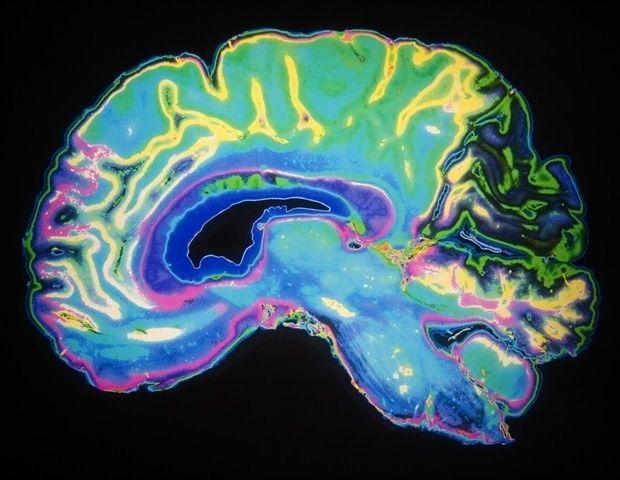AI 'Kindergarten' Training Enhances Complex Task Learning in Neural Networks
2 Sources
2 Sources
[1]
Researchers take AI to 'kindergarten' in order to learn more complex tasks
In their work, published in the journal Nature Machine Intelligence, researchers found that when recurrent neural networks (RNNs) are first trained on simple cognitive tasks, they are better equipped to handle more difficult and complex ones later on. The paper's authors labeled this form of training kindergarten curriculum learning as it centers on first instilling an understanding of basic tasks and then combining knowledge of these tasks in carrying out more challenging ones. "From very early on in life, we develop a set of basic skills like maintaining balance or playing with a ball," explains Cristina Savin, an associate professor in NYU's Center for Neural Science and Center for Data Science. "With experience, these basic skills can be combined to support complex behavior -- for instance, juggling several balls while riding a bicycle. "Our work adopts these same principles in enhancing the capabilities of RNNs, which first learn a series of easy tasks, store this knowledge, and then apply a combination of these learned tasks to successfully complete more sophisticated ones." RNNs -- neural networks that are designed to process sequential information based on stored knowledge -- are particularly useful in speech recognition and language translation. However, when it comes to complex cognitive tasks, training RNNs with existing methods can prove difficult and fall short of capturing crucial aspects of animal and human behavior that AI systems aim to replicate. To address this, the study's authors -- who also included David Hocker, a postdoctoral researcher in NYU's Center for Data Science, and Christine Constantinople, a professor in NYU's Center for Data Science -- first conducted a series of experiments with laboratory rats. The animals were trained to seek out a water source in a box with several compartmentalized ports. However, in order to know when and where the water would be available, the rats needed to learn that delivery of the water was associated with certain sounds and the illumination of the port's lights -- and that the water was not delivered immediately after these cues. In order to reach the water, then, the animals needed to develop basic knowledge of multiple phenomena (e.g., sounds precede water delivery, waiting after the visual and audio cues before trying to access the water) and then learn to combine these simple tasks in order to complete a goal (water retrieval). These results pointed to principles of how the animals applied knowledge of simple tasks in undertaking more complex ones. The scientists took these findings to train RNNs in a similar fashion -- but, instead of water retrieval, the RNNs managed a wagering task that required these networks to build upon basic decision making in order to maximize the payoff over time. They then compared this kindergarten curriculum learning approach to existing RNN-training methods. Overall, the team's results showed that the RNNs trained on the kindergarten model learned faster than those trained on current methods. "AI agents first need to go through kindergarten to later be able to better learn complex tasks," observes Savin. "Overall, these results point to ways to improve learning in AI systems and call for developing a more holistic understanding of how past experiences influence learning of new skills." This research was funded by grants from the National Institute of Mental Health (1R01MH125571-01, 1K01MH132043-01A1) and conducted using research computing resources of the Empire AI consortium, with support from the State of New York, the Simons Foundation, and the Secunda Family Foundation.
[2]
AI goes to 'kindergarten' in order to learn more complex tasks
We need to learn our letters before we can learn to read and our numbers before we can learn how to add and subtract. The same principles are true with AI, a team of New York University scientists has shown through laboratory experiments and computational modeling. In their work, published in the journal Nature Machine Intelligence, researchers found that when recurrent neural networks (RNNs) are first trained on simple cognitive tasks, they are better equipped to handle more difficult and complex ones later on. The paper's authors labeled this form of training kindergarten curriculum learning as it centers on first instilling an understanding of basic tasks and then combining knowledge of these tasks in carrying out more challenging ones. "From very early on in life, we develop a set of basic skills like maintaining balance or playing with a ball," explains Cristina Savin, an associate professor in NYU's Center for Neural Science and Center for Data Science. "With experience, these basic skills can be combined to support complex behavior -- for instance, juggling several balls while riding a bicycle. "Our work adopts these same principles in enhancing the capabilities of RNNs, which first learn a series of easy tasks, store this knowledge, and then apply a combination of these learned tasks to successfully complete more sophisticated ones." RNNs -- neural networks that are designed to process sequential information based on stored knowledge -- are particularly useful in speech recognition and language translation. However, when it comes to complex cognitive tasks, training RNNs with existing methods can prove difficult and fall short of capturing crucial aspects of animal and human behavior that AI systems aim to replicate. To address this, the study's authors -- who also included David Hocker, a postdoctoral researcher in NYU's Center for Data Science, and Christine Constantinople, a professor in NYU's Center for Data Science -- first conducted a series of experiments with laboratory rats. The animals were trained to seek out a water source in a box with several compartmentalized ports. However, in order to know when and where the water would be available, the rats needed to learn that delivery of the water was associated with certain sounds and the illumination of the port's lights -- and that the water was not delivered immediately after these cues. In order to reach the water, then, the animals needed to develop basic knowledge of multiple phenomena (e.g., sounds precede water delivery, waiting after the visual and audio cues before trying to access the water) and then learn to combine these simple tasks in order to complete a goal (water retrieval). These results pointed to principles of how the animals applied knowledge of simple tasks in undertaking more complex ones. The scientists took these findings to train RNNs in a similar fashion -- but, instead of water retrieval, the RNNs managed a wagering task that required these networks to build upon basic decision-making in order to maximize the payoff over time. They then compared this kindergarten curriculum learning approach to existing RNN-training methods. Overall, the team's results showed that the RNNs trained on the kindergarten model learned faster than those trained on current methods. "AI agents first need to go through kindergarten to later be able to better learn complex tasks," observes Savin. "Overall, these results point to ways to improve learning in AI systems and call for developing a more holistic understanding of how past experiences influence learning of new skills."
Share
Share
Copy Link
Researchers at NYU have developed a new training method for recurrent neural networks (RNNs) inspired by early childhood learning, showing improved performance on complex tasks.

New 'Kindergarten' Approach Boosts AI Learning Capabilities
Researchers at New York University have developed a novel training method for artificial intelligence systems, drawing inspiration from early childhood education. The study, published in Nature Machine Intelligence, demonstrates that recurrent neural networks (RNNs) can learn complex tasks more effectively when first trained on simpler, foundational skills
1
2
.The Kindergarten Curriculum Learning Method
The research team, led by Associate Professor Cristina Savin from NYU's Center for Neural Science and Center for Data Science, introduced what they call "kindergarten curriculum learning." This approach involves training AI systems on basic tasks before progressing to more complex ones, mirroring the way humans acquire skills from an early age
1
."From very early on in life, we develop a set of basic skills like maintaining balance or playing with a ball," explains Savin. "With experience, these basic skills can be combined to support complex behavior -- for instance, juggling several balls while riding a bicycle"
2
.Experimental Design and Findings
The study combined both animal experiments and computational modeling to validate their approach:
-
Rat Experiments: Laboratory rats were trained to locate water in a compartmentalized box. The animals had to learn to associate water delivery with specific sounds and light cues, and understand that water wasn't immediately available after these cues
1
2
. -
RNN Training: Using insights from the rat experiments, the researchers applied a similar training method to RNNs. The networks were tasked with a wagering exercise that required building upon basic decision-making skills to maximize payoffs over time
1
. -
Comparative Analysis: The team compared their kindergarten curriculum learning approach with existing RNN training methods. Results showed that RNNs trained using the new approach learned faster and more effectively than those trained with current techniques
2
.
Related Stories
Implications for AI Development
This research has significant implications for enhancing AI learning capabilities:
-
Improved Learning Efficiency: The kindergarten approach allows AI systems to acquire complex skills more rapidly and effectively
1
2
. -
Bridging the Gap: This method could help AI systems better replicate crucial aspects of animal and human behavior, addressing current limitations in RNN training for complex cognitive tasks
1
. -
Holistic Learning: The study emphasizes the importance of understanding how past experiences influence the acquisition of new skills in AI systems
2
.
Future Directions
The research team suggests that this approach could lead to more sophisticated AI systems capable of handling increasingly complex tasks. "AI agents first need to go through kindergarten to later be able to better learn complex tasks," notes Savin
2
.This study, funded by grants from the National Institute of Mental Health and supported by the Empire AI consortium, opens new avenues for AI research and development. It underscores the potential of interdisciplinary approaches, combining insights from neuroscience, psychology, and computer science to advance artificial intelligence
1
.References
Summarized by
Navi
Related Stories
New AI Model Mimics Toddler Learning, Offering Insights into Human Cognition and AI Development
24 Jan 2025•Science and Research

Children Outpace AI in Language Learning: New Framework Reveals Key Differences
25 Jun 2025•Science and Research

Artificial Neural Networks Achieve Superior Performance with Biological Pre-Training
13 Jun 2025•Science and Research

Recent Highlights
1
ByteDance's Seedance 2.0 AI video generator triggers copyright infringement battle with Hollywood
Policy and Regulation

2
Demis Hassabis predicts AGI in 5-8 years, sees new golden era transforming medicine and science
Technology

3
Nvidia and Meta forge massive chip deal as computing power demands reshape AI infrastructure
Technology





